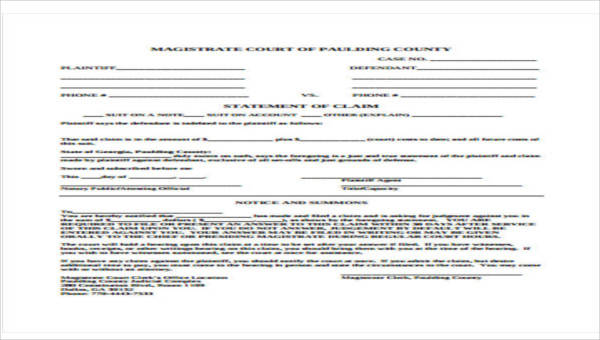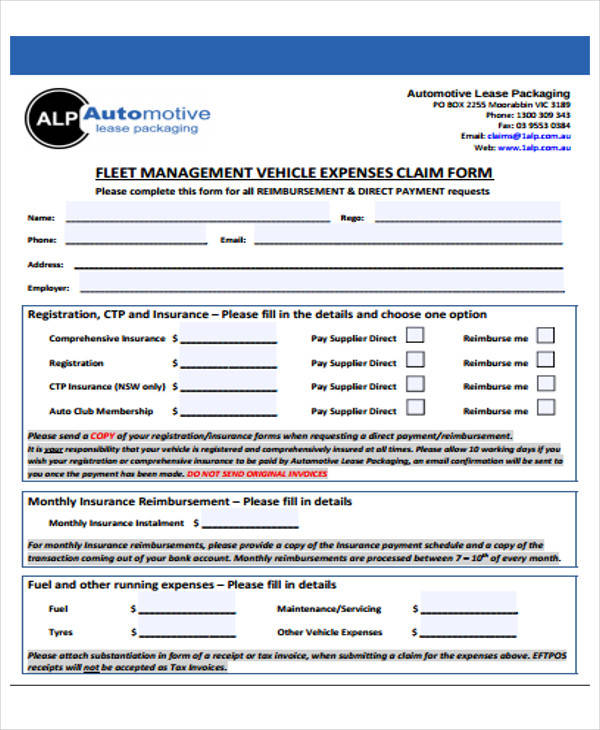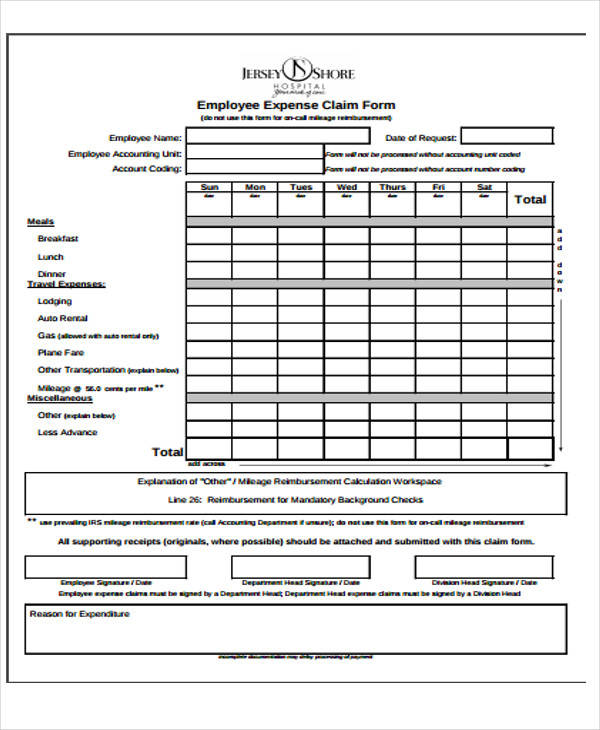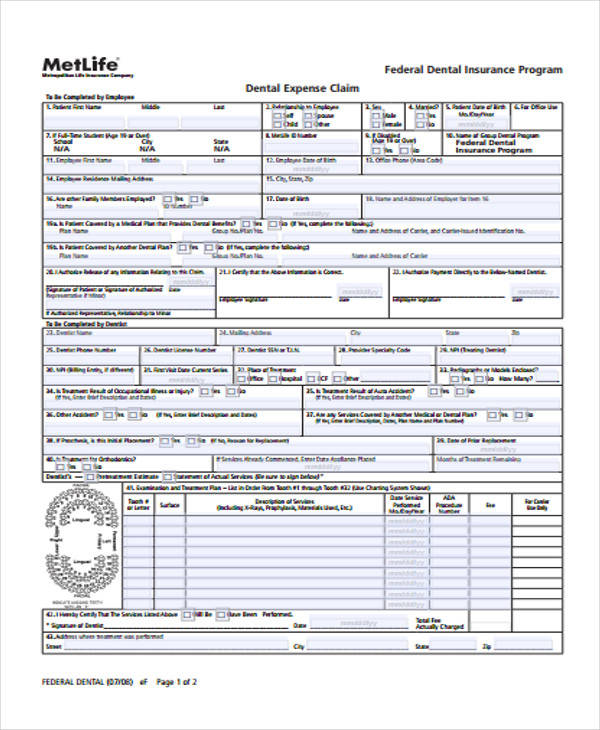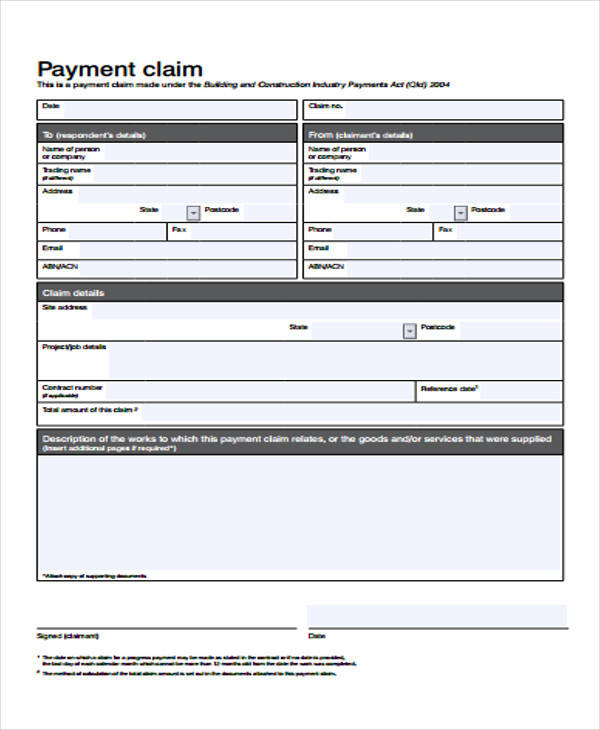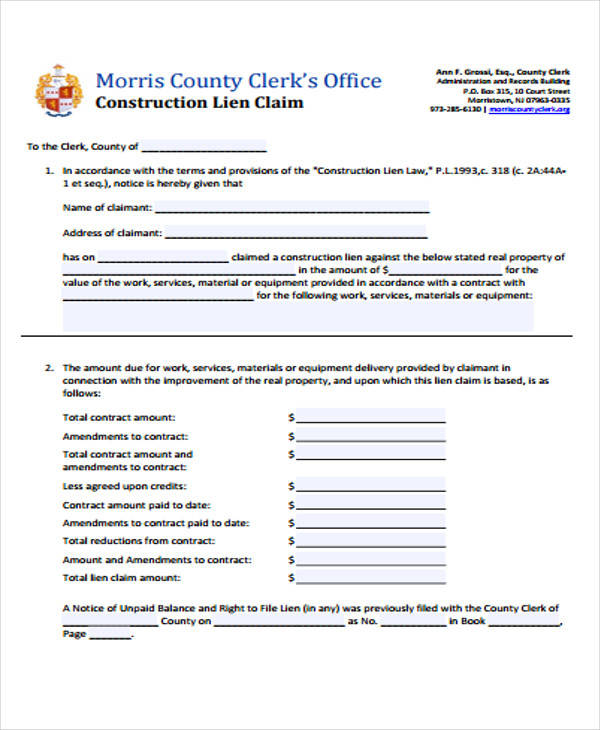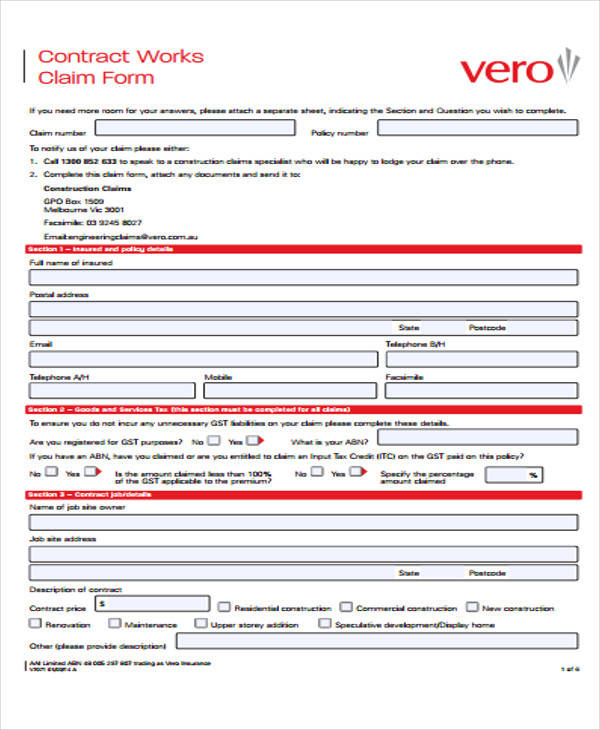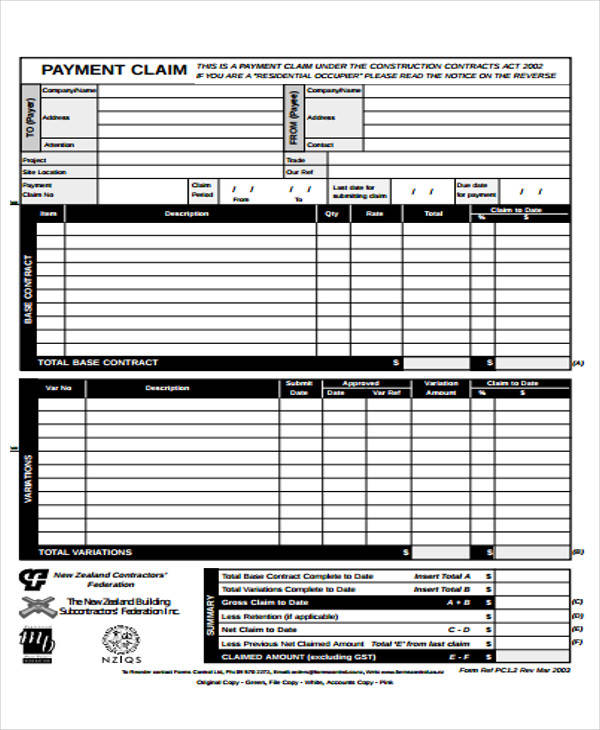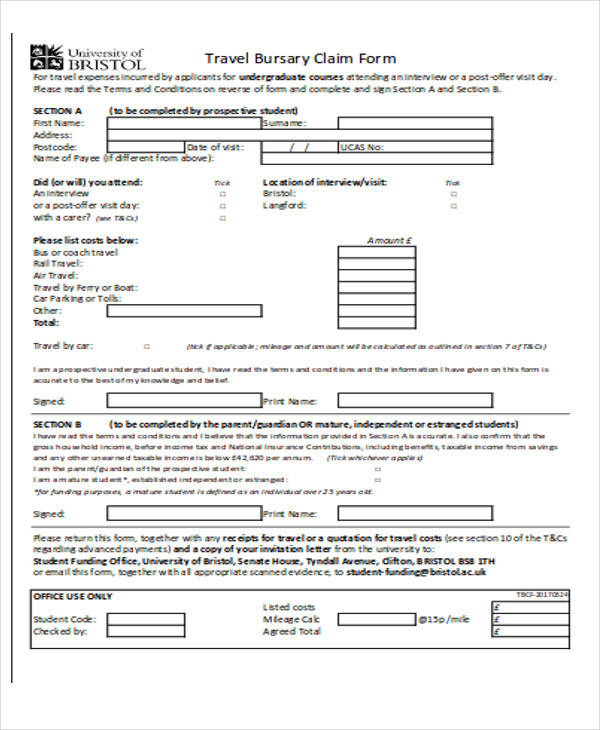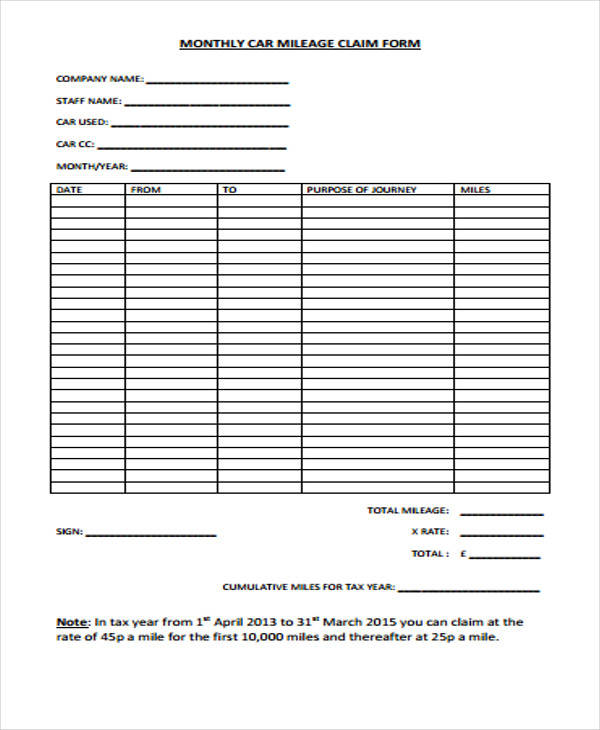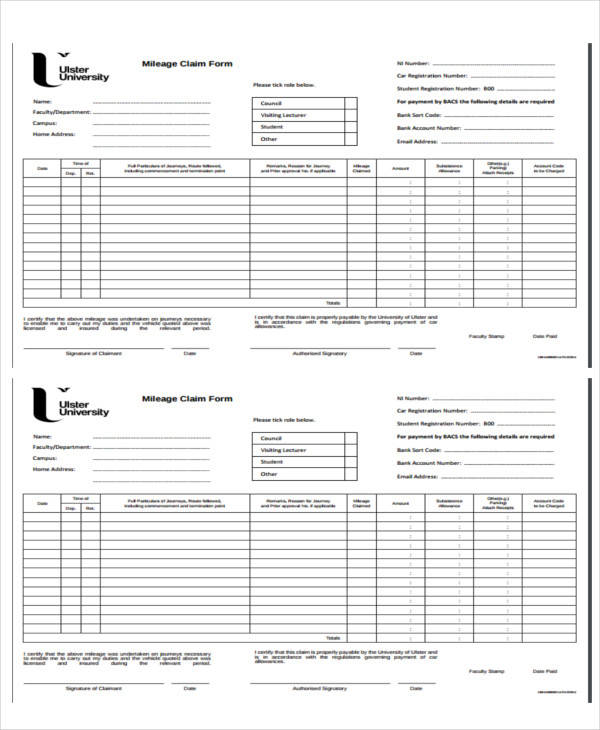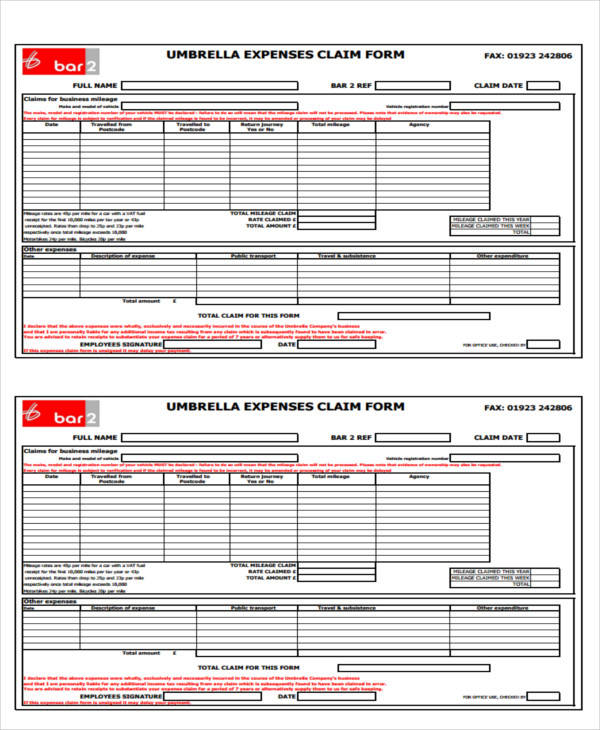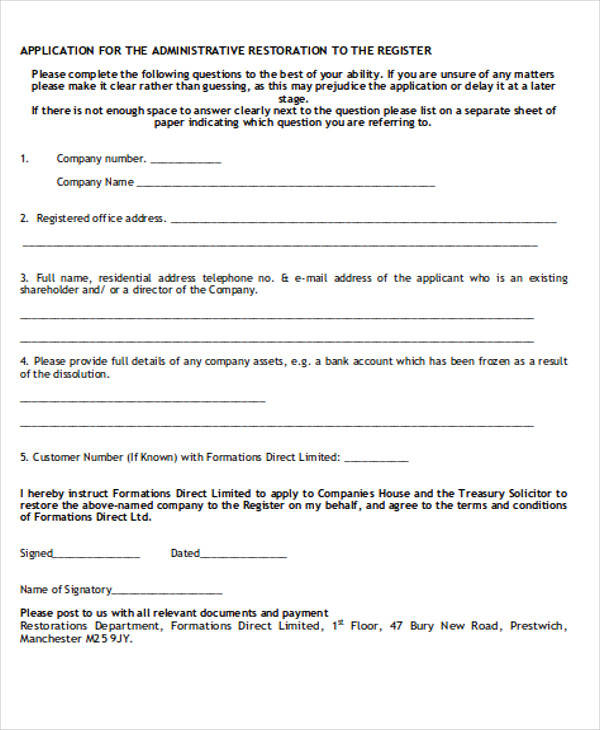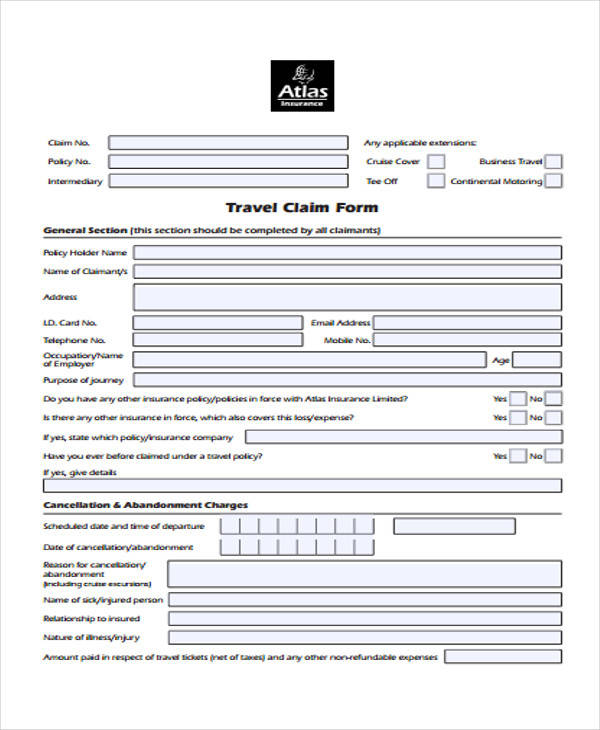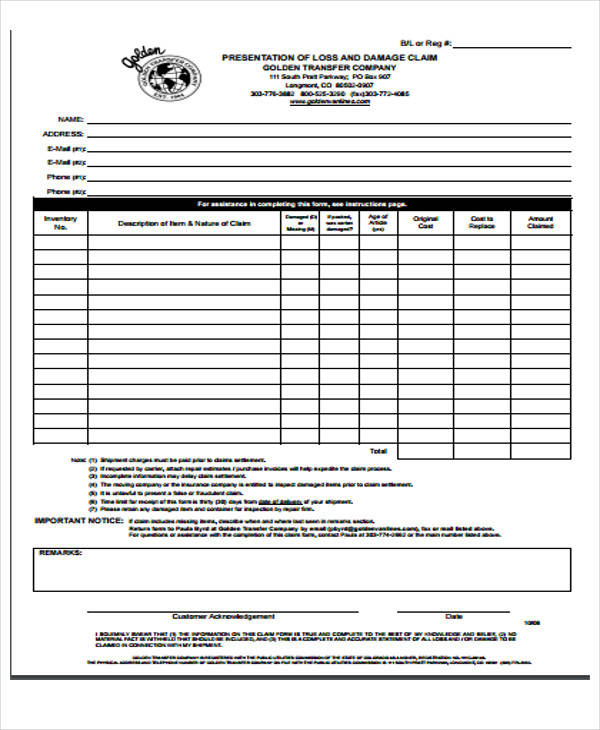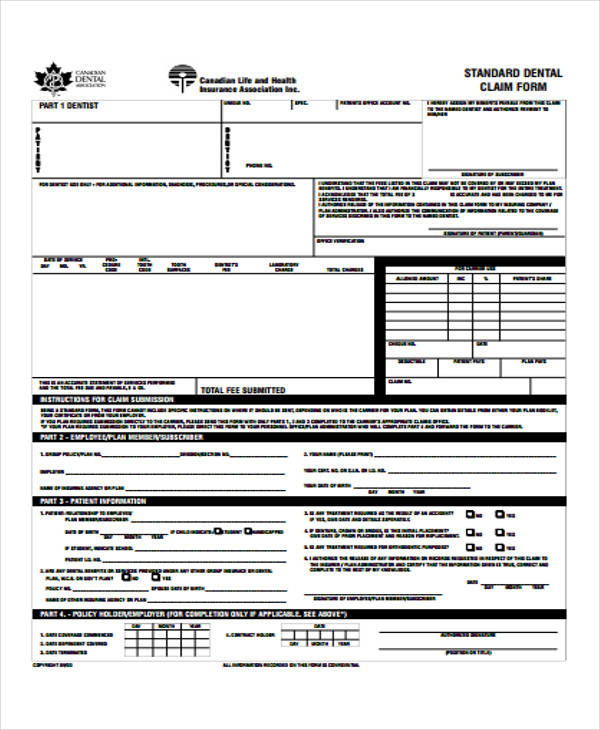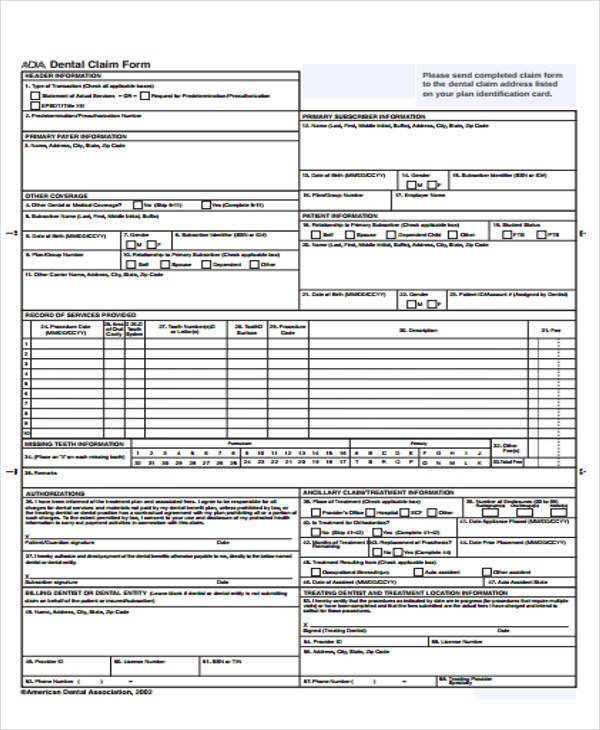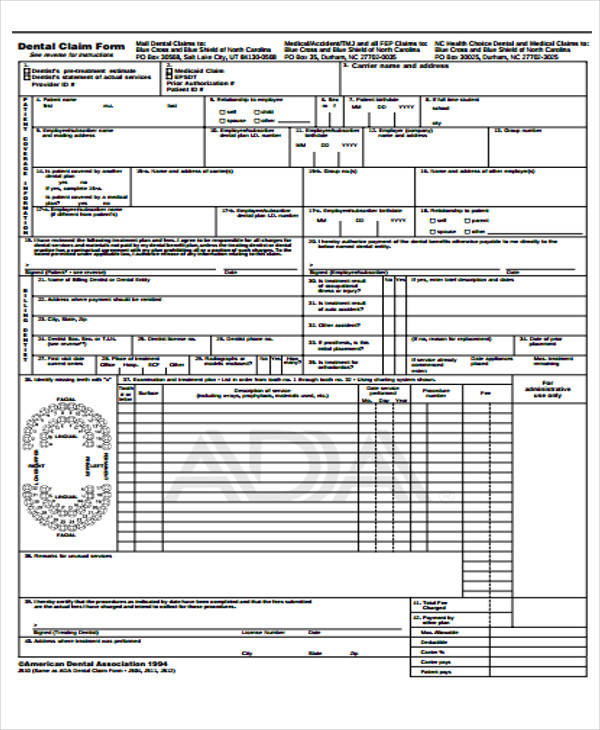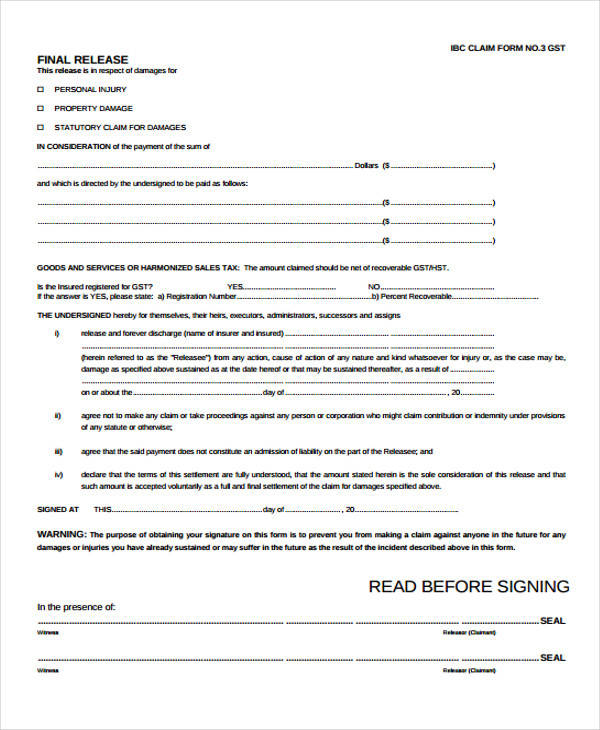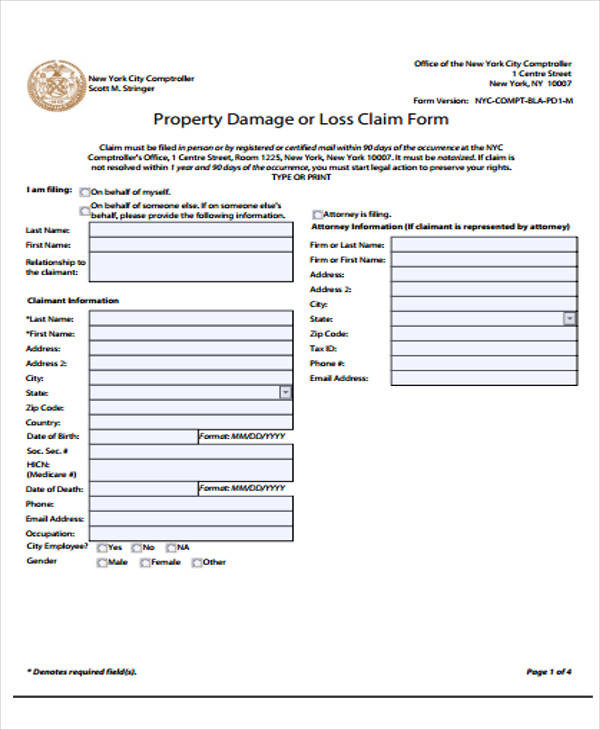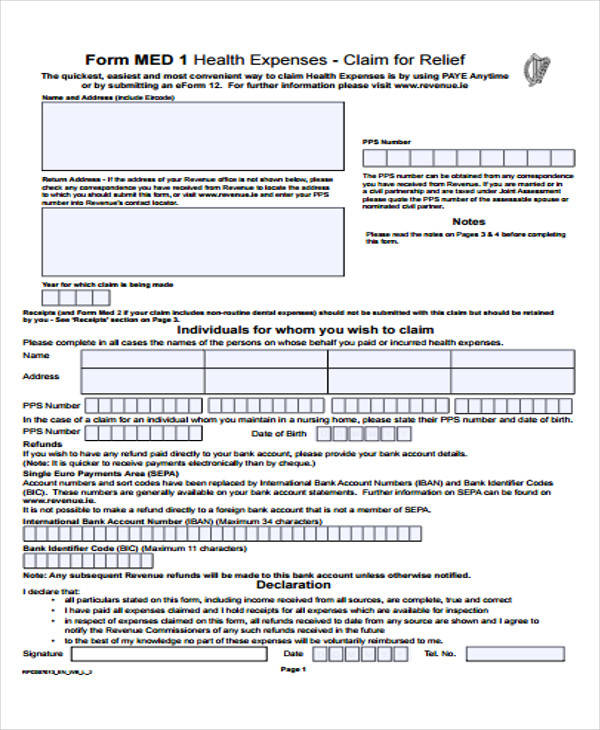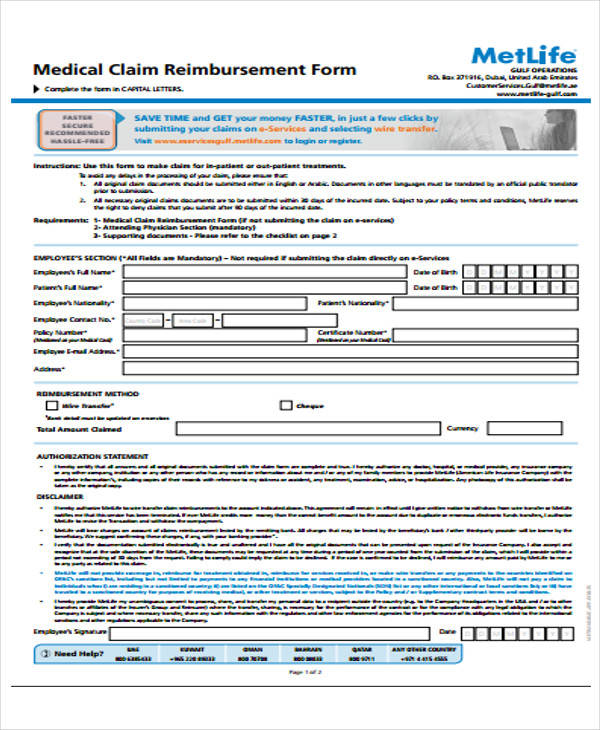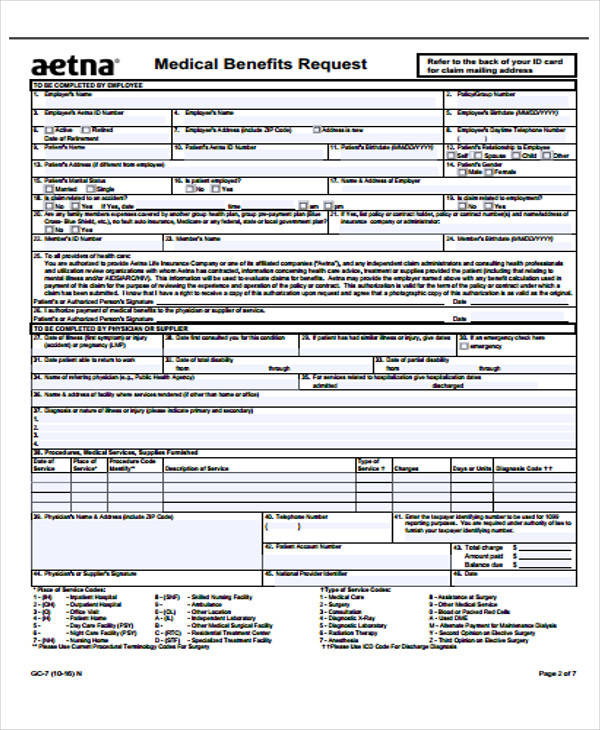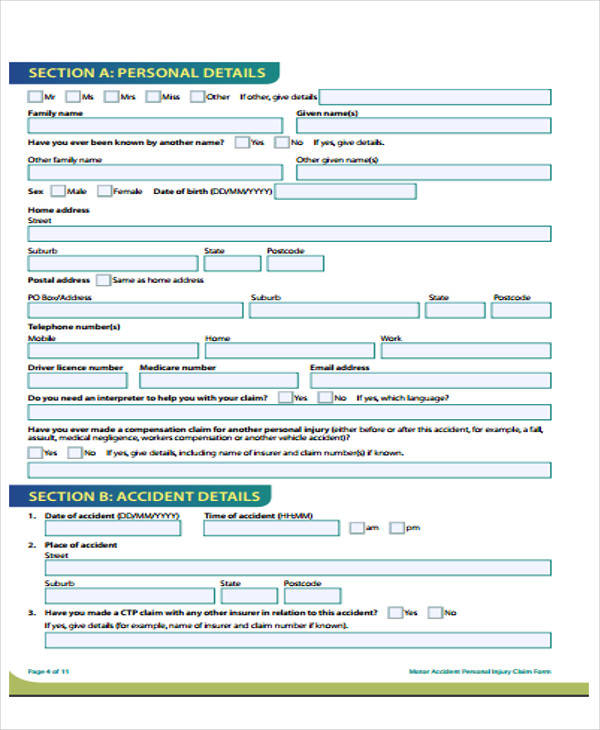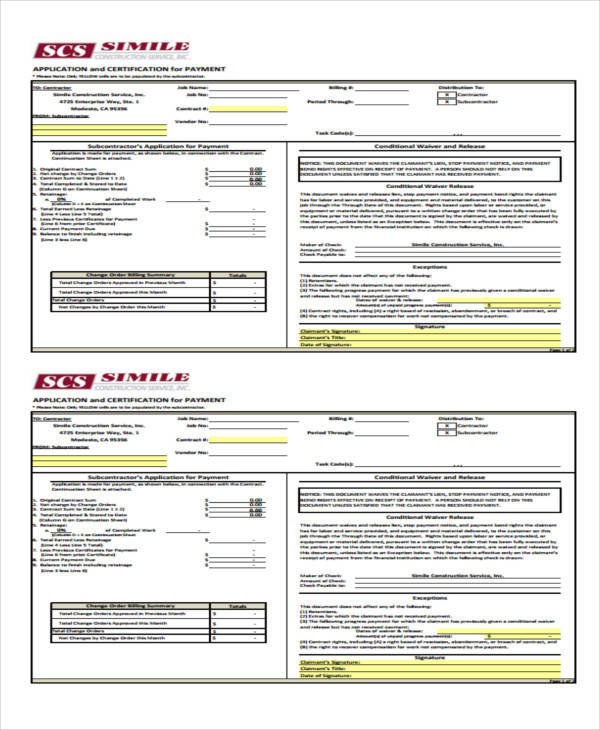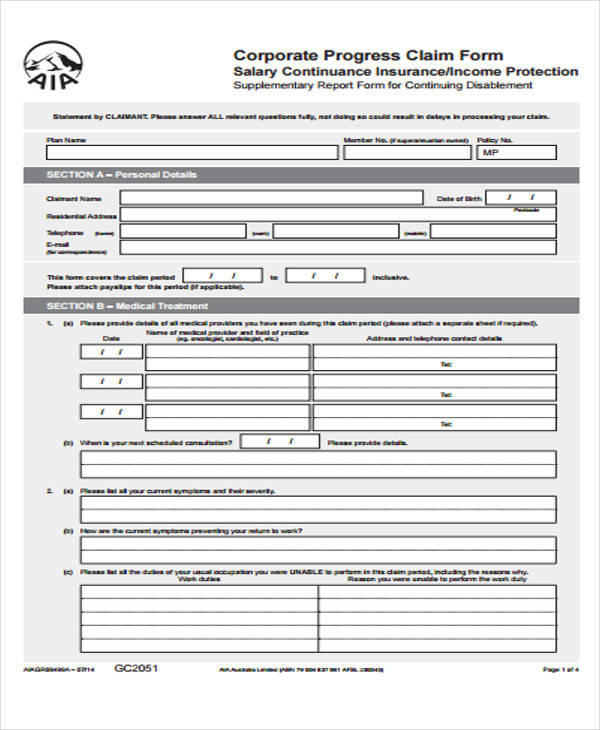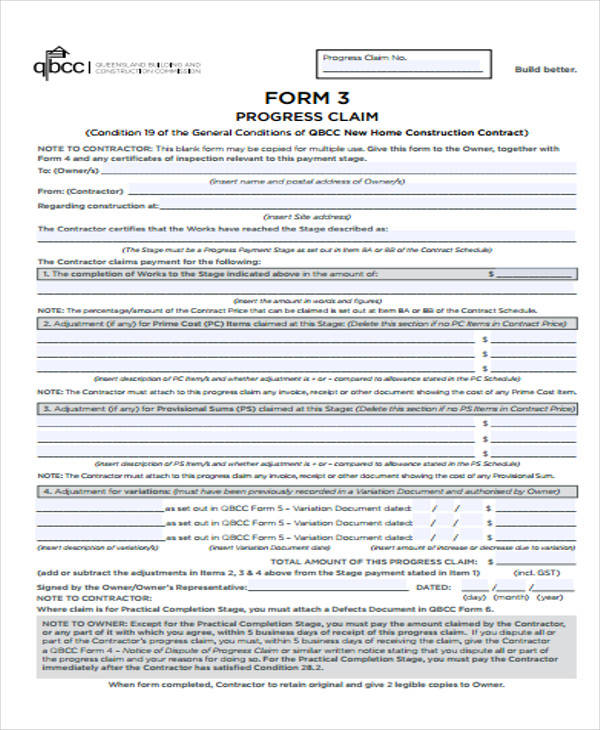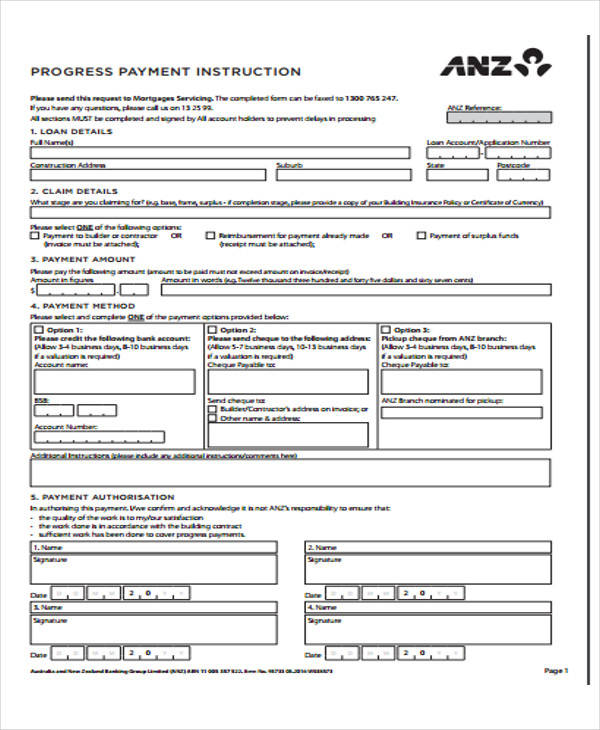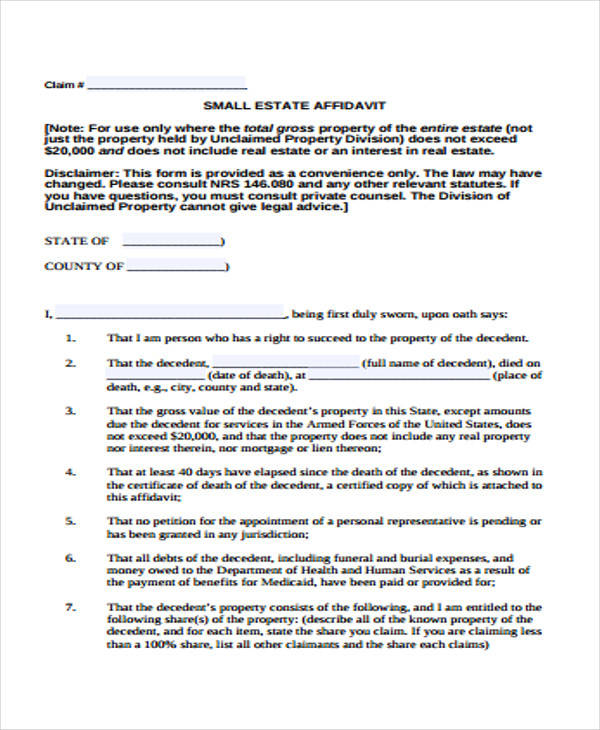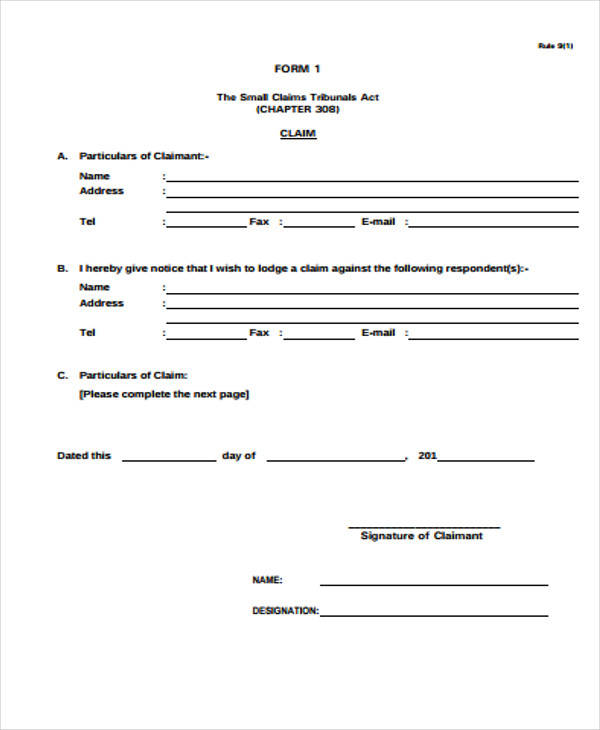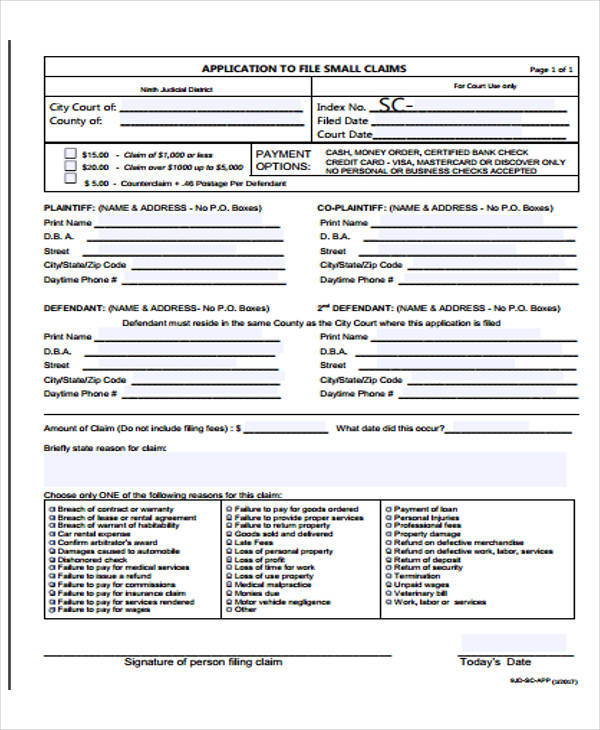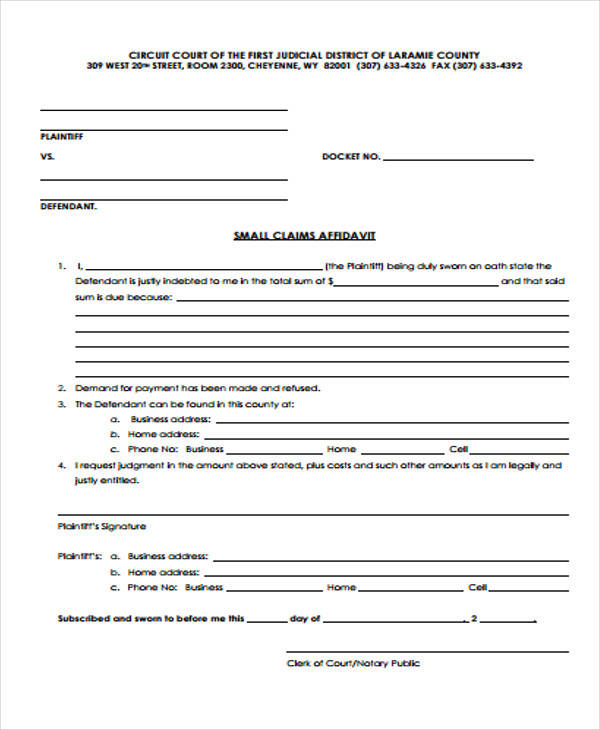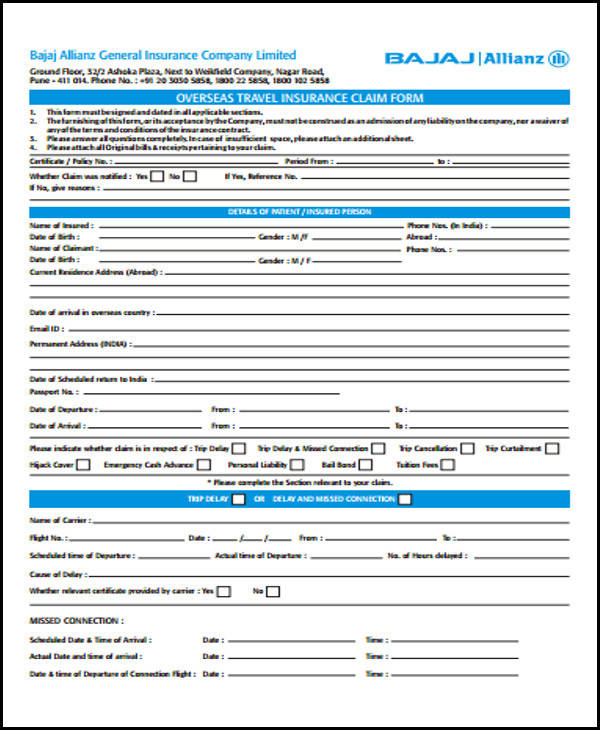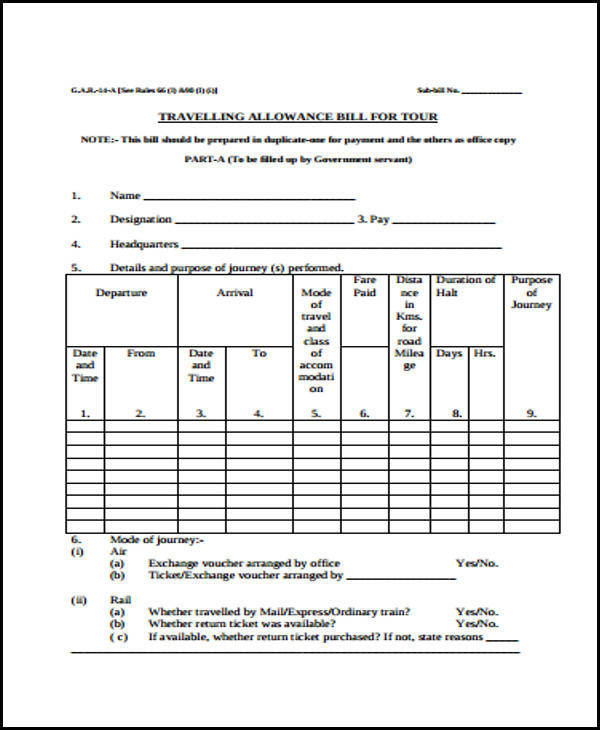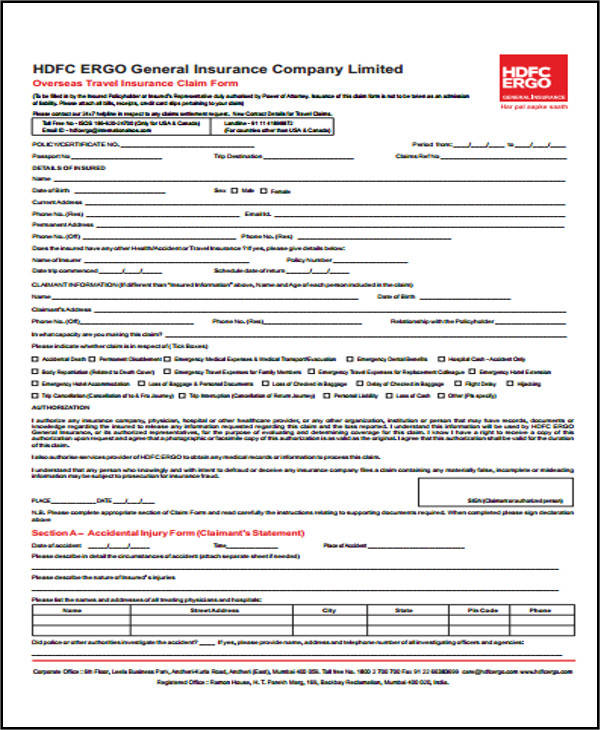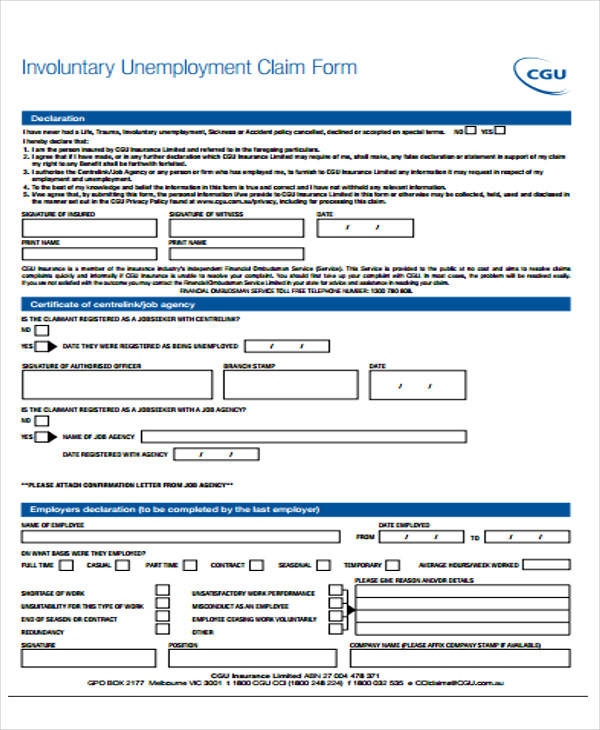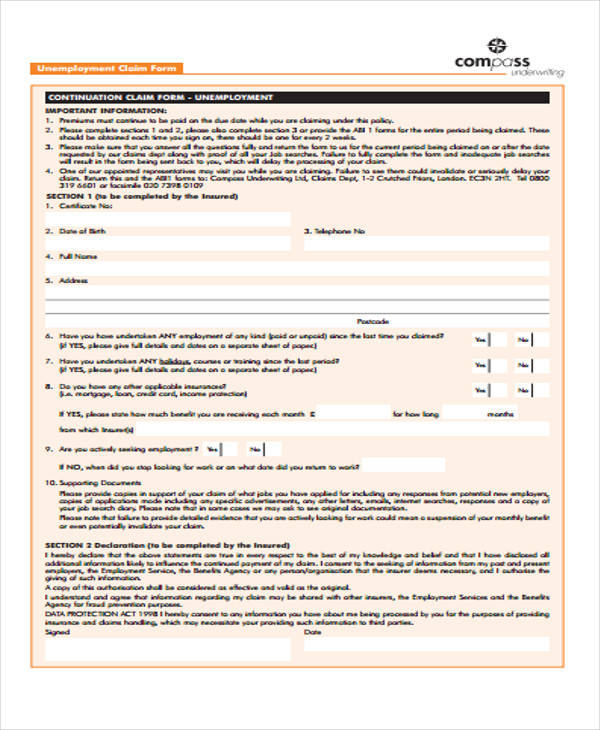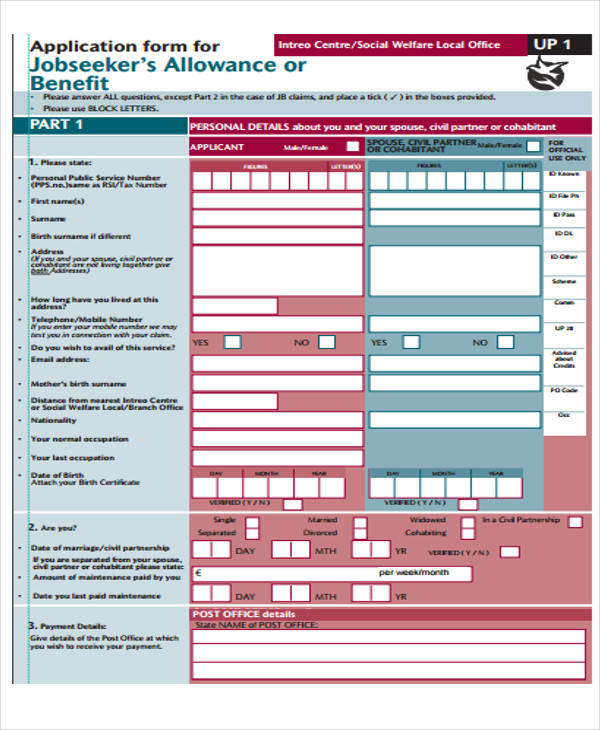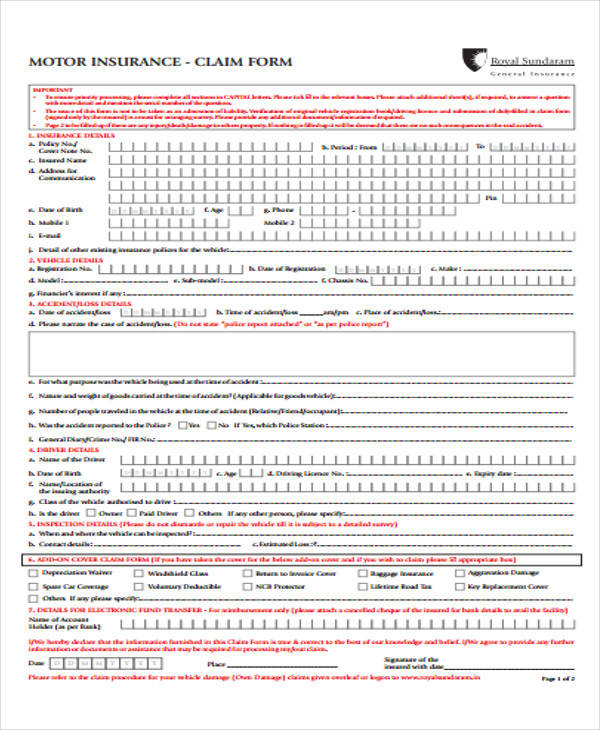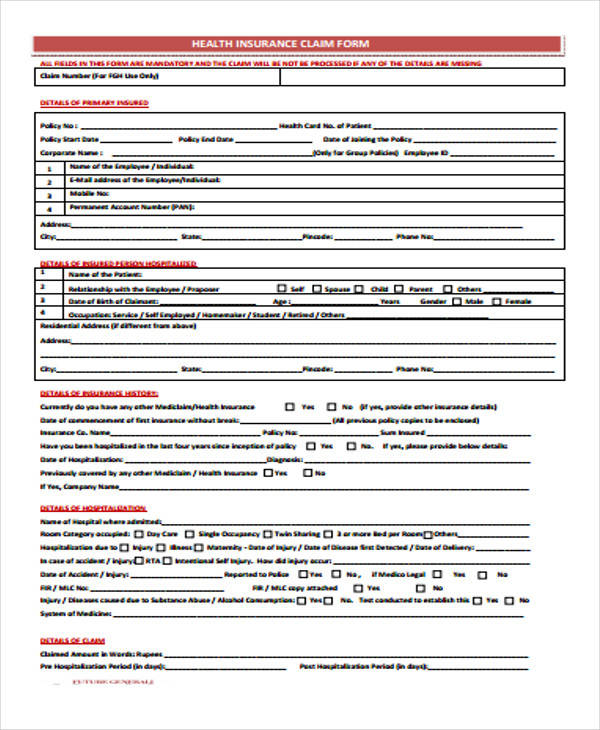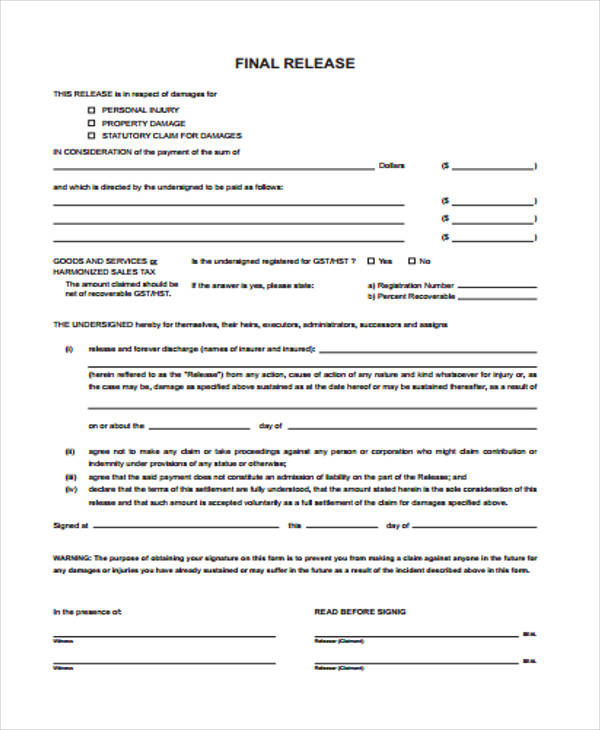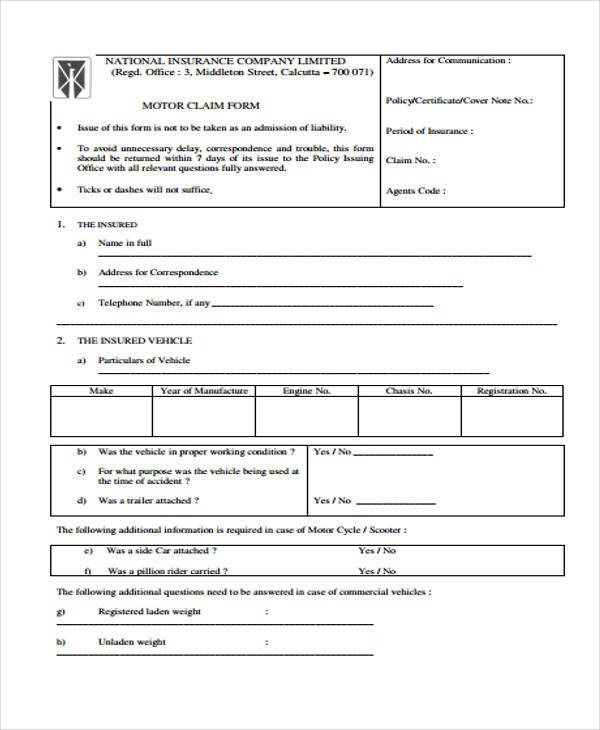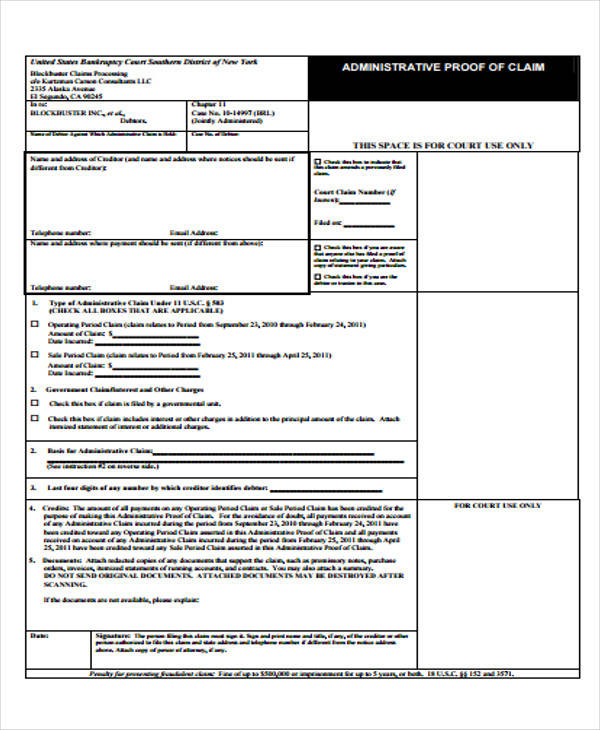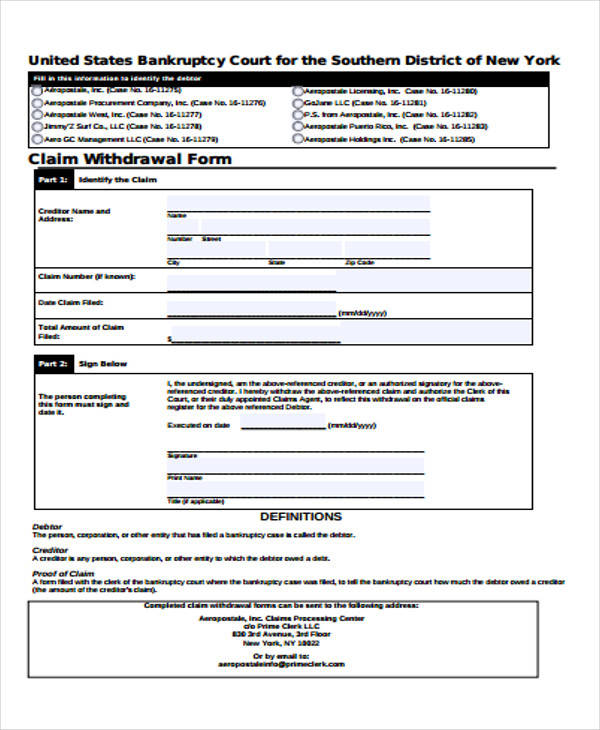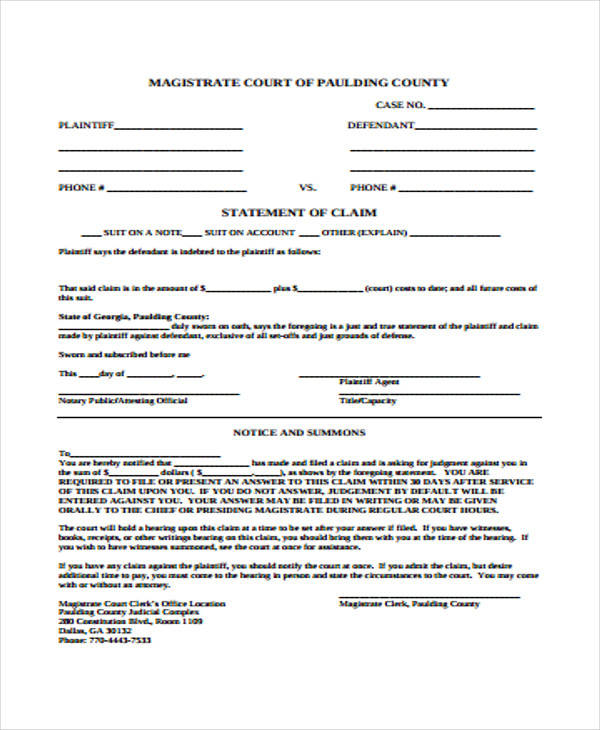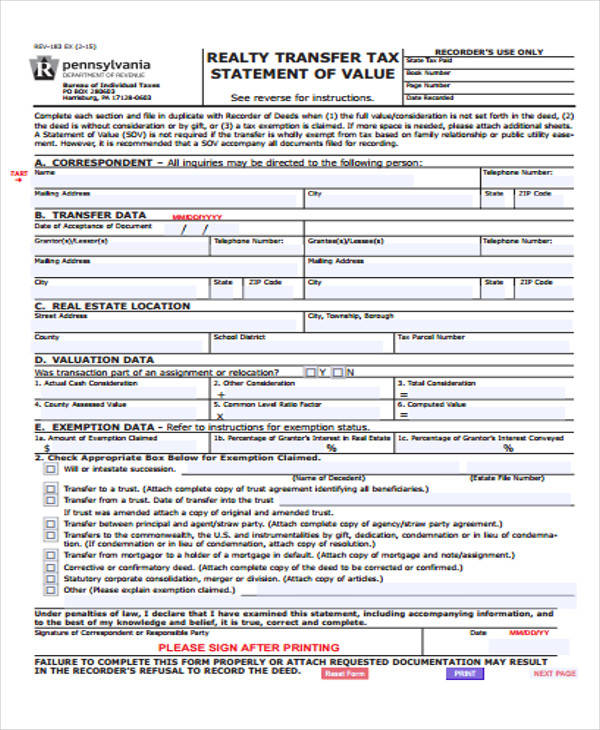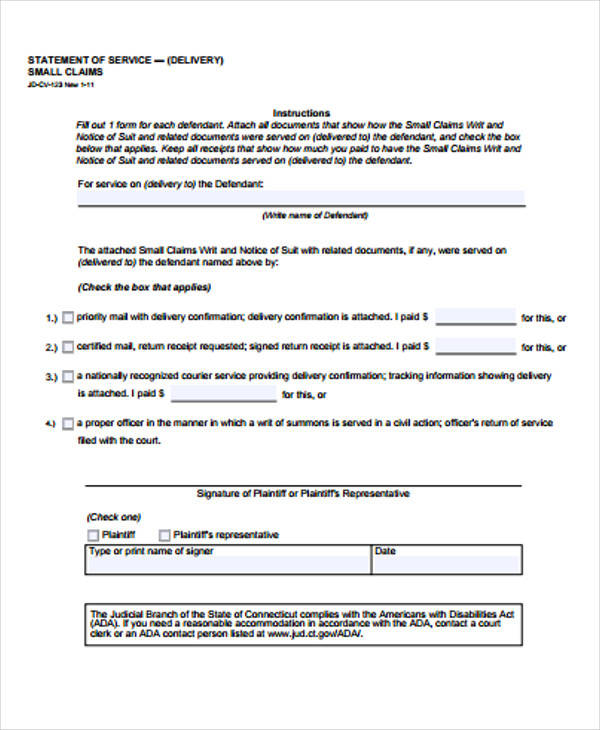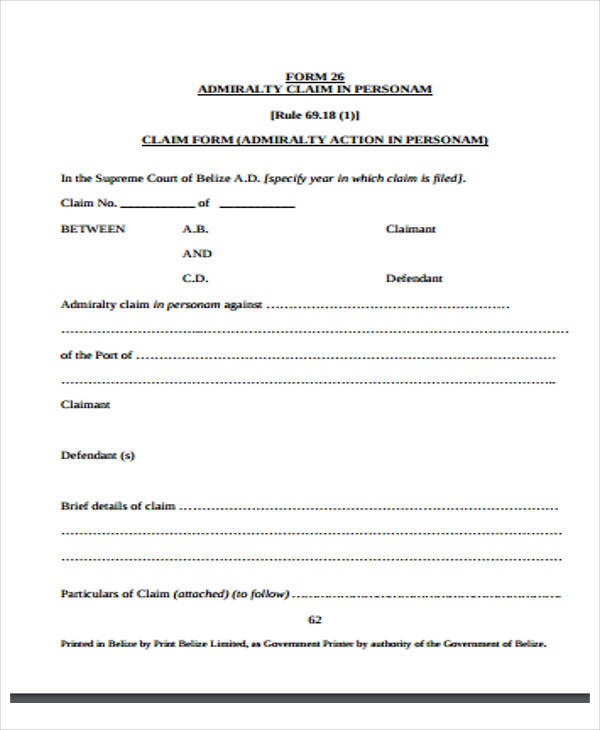A claim form is a formal document with specifics as to why a person, group or company should be given or reimbursed with money. Businesses from all industries use claim forms as justification and documentation in releasing certain amounts for designated reasons. From medical purposes to work-related expenses, claim forms have helped in the quick processing of financial reimbursements, without the need for lengthy request letters and interviews. The convenience of a form is that it already has most of the details available and you only need to select the options that apply and only fill out what is necessary.
Expense Claim Forms
Fleet Expense Claim Form
Employee Expense Claim Form
Dental Expense Claim Form
Construction Claim Forms
Construction Payment Claim Form
Construction Lien Claim Form
Contract Work Claim Form Sample
Construction Contract Payment Claim Form
Mileage Claim Forms
Travel Bursary Mileage Claim Form
Monthly Car Mileage Claim Form
Mileage Allowance Claim Form
Company Claim Forms
Company Expenses Claim Form
Company Restoration Claim Form
Company Travel Claim Form
Company Loss and Damage Claim Form
Dental Claim Forms
Dental Insurance Claim Form
Dental Standard Claim Form
Dental Choice Claim Form
What’s a Written Form?
A form is a written document with squares and spaces that may be filled up and checked. Most forms, such as claim forms, are mass produced and printed with most parts in common except for their control or serial number. Most forms are required to be filled in 2 or 3 copies, whichever is applicable. Due to the convenience and easy to understand nature of that type of document, a lot of businesses have forms for all types of common transactions such as, but not limited to, employee expenses claims, medical claims and vacation leave claims.
Advantages of Using Claim Forms
- Less writing
Claim forms have formats and fields that you only have to check and supply. Some companies have their form templates stored in a PC for easy access; you can just edit and print them out. This is important because it saves time and effort on the part of the employee.
- Reminder on what fields should be supplied
Sometimes, employees forget to put important details and information, wasting a lot of time and effort in going through a whole process; whereas forms already have selections waiting to be filled up. It’s important because some claim documents get sent back to their owners due to lack of information, so creating claim forms would save time in processing.
- Uniformity in look and layout, distinguishable at first glance
Claim forms for certain companies have the company logos and other information, making the document look official and recognizable. In banks, they have a practice of color-coding their forms in order to distinguish one from the other. This is important because forms are processed by persons who might have to look through hundreds of documents daily, so it helps them save time.
- Convenient for data interpretation and inputting
Processing of claims can be done by a computer since forms usually have corresponding software or system developed with them. All the interpreter has to do is input the data into the computer and the machine does the thinking for them. Data that are inputted in the computer are easier to translate into charts and tables with formulas, so it’s more convenient to analyze and create statistics.
- Easy to produce, reproduce and store
Some claim forms can be printed once then photocopied in bulk on thinner sheets of paper or recycled paper. Not only is it better for the environment, it is easier to store since the documents are designed for storage and readability even with the passing of time.
- Can be reexamined in the future
The benefit of storing the data in the computer, as well as keeping the physical copy in storage, is that you can easily reexamine the contents and claims. Since financial matters are very sensitive, it is comforting to know that you can double-check on details in a convenient manner.
- Easy to understand
A good form is one that can easily be understood by users of all ages. If claim forms are incomprehensible, then it needs to be redesigned.
Damage Claim Forms
Damage Claim Release Form
Property Damage Claim Form
Medical Claim Forms
Medical Expenses Claim Form
Medical Claim Reimbursement Form
Medical Benefits Claim Form
Personal Injury Claim Forms
Motor Accident Personal Injury Claim Form
Personal Injury Protection Claim Form
Progress Claim Forms
Subcontractor Progress Claim Form
Work Progress Claim Form
Building Progress Claim Form
Progress Payment Claim Form
Small Claim Forms
Small Estate Claim Form
Small Claim Tribunal Form
Small Claim Application Form
Small Claim Affidavit Form
When to Use a Claim Form
Claim forms are very useful especially in a corporate setting, but when do you know that you are to make a claim form template instead of just creating a claim letter? Here are a few considerations to take note of in order to determine whether or not an occurrence needs a claim form:
- How often does that expense happen?
- How many people can use the form?
- How many people will process the documents?
If an expense only happens once or twice a year and only one person uses it, that means that you will only use two claim forms in a whole year. Forms usually come in packs of fifty or a hundred so it would take twenty-five or fifty years for you to consume a pad with that usage rate. If the expense happens at least twice a month for at least five people, then a claim form would be a feasible investment, especially when only one person processes for an entire department.
Claim Letters
A letter is a written form of communication that could also serve as proof of correspondence between one person or party to another. A claim letter is a document that goes into detail regarding an incident or occurrence wherein compensation is needed or requested. It is like a claim form only with more details, fully customized and often created from scratch. Many people interchange this kind of letter to a complaint letter due to the stating of facts being confused as giving a complaint.
Advantages of Using a Claim Letter
Like the claim forms, claim letters have their own function and benefits. Aside from being more formal-looking than claim forms, here are a few of the advantages of using claim letters instead:
- It is more personalized than a claim form
A formal letter containing the full name of the sender and recipient is more personal and can have more liberties than when you fill up a form, which is limited to the fields and boxes that are allowable. Although a form can also contain a person’s name and other details, it is not as personal as having a customized letter because a letter could contain more intimate details regarding a subject.
- You can go into more detail and discuss further information
In some events where further context is needed, a claim form will only be able to accommodate certain details of a claim. A claim letter is needed to address further concerns, as well as raise points that cannot be stated in the claim form due to lack of boxes or space.
- A letter is also a widely-accepted form of documentation
It provides an immediate and permanent physical record of the correspondence. Claim forms are usually just used internally or within a certain company or area, whereas a claim letter could be used in inter-company dealings (except in partnerships when they usually employ forms for quicker transactions) and other functions. Letters can be understood even by practitioners that are not in your industry.
Travel Claim Forms
Overseas Travel Insurance Claim Form Sample
Travel Allowance Claim Form
Travel Insurance Claim Form
Unemployment Claim Forms
Involuntary Unemployment Claim Form Sample
Continuation Unemployment Claim Form
Unemployment Benefit Claim Form
Insurance Claim Forms
Motor Insurance Claim Form
Health Insurance Claim Form
Insurance Claim Release Form
National Insurance Claim Form
Proof of Claim Forms
Administrative Proof of Claim Form
Proof of Claim Withdrawal Form
Statement of Claim Forms
Court Statement of Claim Form
Statement of Value Claim Form
Statement of Small Claim Form
Statement of Truth Claim Form
Parts of a Claim Form
A claim form is an important document that is used in several industries, especially in businesses that do daily transactions and have a lot of partner establishments. A form could have different appearances in accordance to the brand or identity of a certain company or organization. There are different standards and practices on what an actual claim form should look like but regardless of what format or layout is being used, a common claim form has two or more of the following parts:
- Header or Heading
The header contains text and images like company name, logo, address, contact information and other information. The name or functional title (such as Employee Expense Claim Form) is found at the top of the document and is usually indicated in bold as one of the headers, either in line with the company details or on its own at the topmost part of the document.
- Control number or serial number
When a claim form is printed in bulk, serial numbers are put in place to track the usage, as well as documentation purposes or reference. Most serial numbers are written in either red, blue or bold font; in chronological order for easy filing and monitoring.
- Body
A body is where all the relevant information regarding the claim is found; most claim forms have one or more tables to fill in. This is where a person fills up all information about the claim, as well as other details and inclusions. Even though this is the most important part, it cannot function without the help of all the other elements of the form.
- Closing or footer clauses
The closing is usually where the signatories are found, and other notes in filling up the claim form. Some footers have information about the manufacturer of the form, the company, disclaimers and other clauses usually written in letters smaller than the rest of the document.
- Terms and conditions
Usually found at the back of a claim form. It’s not really a part of the actual form itself but it is worth mentioning because it is a client’s guide on the terms and conditions of the claim form that he or she is filling up. Not all claim forms have this part, but in filling up forms that have terms and conditions laid out at the back, one should read them thoroughly before filling anything up.
Related Posts
-
FREE 9+ Juror Reimbursement Claim Samples in PDF | MS Word
-
FREE 9+ Sample Medicare Claim Forms in MS Word | PDF
-
FREE 9+ Sample Proof of Claim Forms in MS Word | PDF
-
FREE 8+ Sample Quit Claim Deed Forms in PDF | MS Word
-
FREE 8+ Sample Quick Claim Deed Forms in PDF | MS Word
-
FREE 8+ Sample Aflac Claim Forms in PDF
-
FREE 11+ Sample Pension Service Claim Forms in PDF | MS Word
-
FREE 10+ Sample Quitclaim Deed Forms in PDF | MS Word
-
FREE 14+ Medical Claim Forms in PDF | MS Word
-
8+ Sample Promissory Note Forms
-
FREE 10+ Overtime Request and Approval Forms Sample in PDF | MS Word
-
FREE 10+ Check-in Forms Samples in PDF
-
FREE 2+ Deposition Correction Forms and Samples in PDF | MS Word
-
FREE 9+ Sample Consumer Contracts Model Cancellation Forms in PDF
-
FREE Creating Effective Evaluation Forms [ With Samples ]
